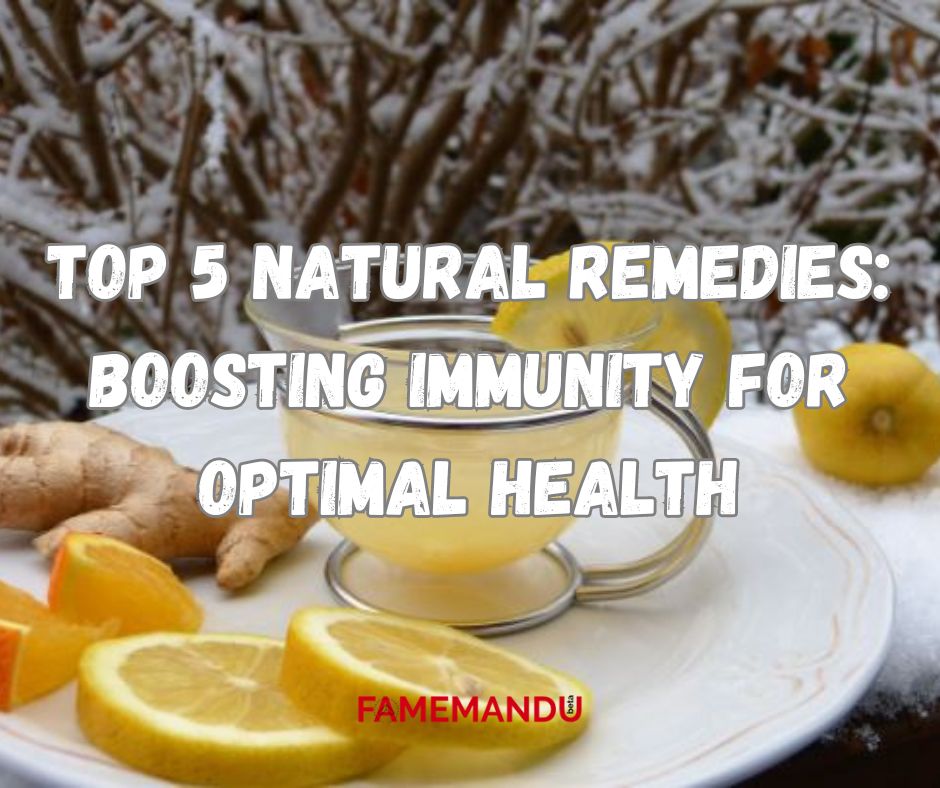1. Echinacea
Popular natural treatment echinacea is thought to strengthen immunity. It comes from the purple coneflower and is believed to boost white blood cell production, which in turn stimulates the immune system. These cells are essential for the body’s defense against infections. Active ingredients found in echinacea include chicoric acid and alkamides, which may have anti-inflammatory and antioxidant effects. Some studies indicate that Echinacea may lessen the risk and duration of respiratory infections, despite conflicting data on its efficacy. Although it’s widely accessible in a variety of forms, including teas, extracts, and supplements, it’s imperative to speak with a healthcare provider about proper dosage and any possible drug interactions or pre-existing medical issues.

2.Vitamin C
Ascorbic acid, sometimes known as vitamin C, is essential for the immune system and general health. Being a strong antioxidant, it supports a healthy immune system by shielding cells from harm from free radicals. White blood cells, which are vital parts of the immune system and include phagocytes and lymphocytes, are produced and function better when vitamin C is present. As a major barrier against pathogens, skin integrity depends on the manufacture of collagen, which is aided in this process. Furthermore, vitamin C improves non-heme iron absorption, promoting hemoglobin synthesis and maximizing oxygen delivery. Maintaining sufficient vitamin C levels through a balanced diet full of fruits and vegetables helps to promote immune function and lessen the intensity and duration of infections, even though it is not a cure for illnesses.

3. Garlic
Known for its unique flavor, garlic has immune-stimulating qualities that are beneficial to general health. Garlic has antibacterial and anti-inflammatory properties that may strengthen the immune system’s ability to fight infections. It is rich in allicin, a sulfur-containing molecule. It is thought that allicin increases white blood cell production and enhances the ability of these cells to effectively neutralize infections. The immune-boosting properties of garlic also include the capacity to lessen the intensity and length of colds and the flu. Garlic also promotes good blood circulation and cardiovascular health, which indirectly affects immunological function. Although it’s not a stand-alone remedy, adding fresh garlic to your food or taking supplements containing garlic can enhance a comprehensive strategy for keeping your immune system robust and resilient. For individualized advice, speaking with a healthcare professional is advised.

4. Probiotics
Probiotics, often referred to as “good” or “friendly” bacteria, play a crucial role in supporting immune function. These live microorganisms, predominantly found in the gut, help maintain a healthy balance of intestinal flora. A significant portion of the immune system resides in the gut-associated lymphoid tissue, where probiotics contribute to the production of antibodies and regulate immune responses. Probiotics also compete with harmful pathogens for space and nutrients in the digestive tract, thereby preventing their overgrowth. By modulating the immune system and promoting a balanced microbial environment, probiotics may enhance the body’s ability to fend off infections and diseases. Including probiotic-rich foods like yogurt, kefir, and fermented vegetables or taking probiotic supplements can be beneficial for overall immune health, particularly in maintaining a diverse and resilient gut microbiome.

5. Turmeric
Turmeric, renowned for its active compound curcumin, holds significant promise in supporting immunity. Curcumin boasts potent anti-inflammatory and antioxidant properties, which contribute to immune system modulation. By suppressing chronic inflammation, turmeric may prevent immune system overactivity and enhance its responsiveness to pathogens. Curcumin has been associated with the stimulation of immune cells, including macrophages and T cells, vital components in the defense against infections. Additionally, its antioxidant capacity aids in protecting cells from oxidative stress, fostering overall immune resilience. While turmeric can be a valuable dietary addition, its absorption is enhanced when consumed with black pepper. Whether incorporated into cuisine or taken as a supplement, turmeric’s immune-supporting attributes make it a promising natural remedy, complementing a holistic approach to maintaining a robust and balanced immune system. Consultation with a healthcare professional is recommended for personalized advice.

Remember, maintaining a balanced and varied diet, staying hydrated, getting regular exercise, managing stress, and ensuring sufficient sleep are also crucial aspects of supporting overall health and a robust immune system. Always consult with a healthcare professional before incorporating new supplements or making significant lifestyle changes.






Leave a Reply